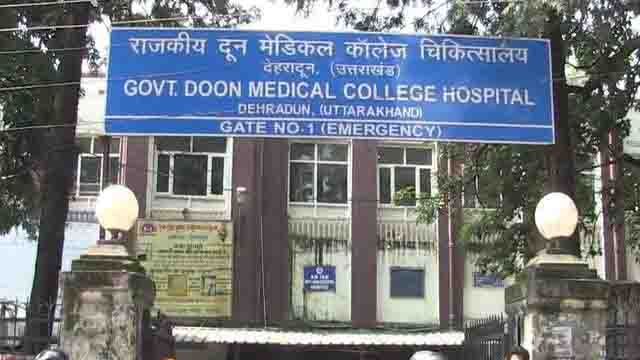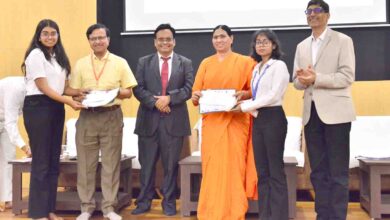Surge in viral fever & stomach infection cases noticed at GDMC

Thursday, 15 August 2024 | PNS | DEHRADUN
With the monsoon rain expected to continue till the end of September, a notable spike is discernible in the cases of viral fever and stomach infections among patients at the Government Doon Medical College (GDMC). Stating this, the medical superintendent at GDMC Dr Anurag Aggarwal said that these seasonal ailments tend to rise during the monsoon season due to the common growth of viruses and bacterial infections. “In tune with the trend, physicians at GDMC have noticed an increase in the number of viral fever and stomach infection cases this monsoon season too,” he added.
He further said that the average daily Outpatient Department (OPD) visits at GDMC have increased from 2200 to 2500 patients. “This rise is due to the surge in cases of viral fever and stomach infections such as diarrhoea and vomiting,” he said
Queried on the common symptoms of these ailments, he cited fever, body aches and stomach pain. “Drinking contaminated water and consuming street foods are the main causes behind the rise in these illnesses. What happens during the monsoon season is that the moisture levels in the atmosphere increase and this increase indirectly raises the chances of infections spreading through water, food and other means. To prevent viral fevers and stomach infections, people are advised to consume filtered or boiled water,” he said.
Moreover, he urged people to keep away from street food and take only home-cooked meals during the monsoon season.
Asked to speak on the dengue status, he said that so far no positive dengue cases have been recorded at the hospital. “The risk of dengue this year is relatively lower compared to previous years and this is due to the fact that temperature surge has reduced the mosquito population, subsequently decreasing the risk of transmission of this vector borne disease,” he said.
“But this does not mean we should be complacent. We must see to it that there is no stagnant water in our surroundings and if we are not alert this will turn out to be ideal breeding grounds for dengue larvae and leave us prey to them,” Aggarwal said.






